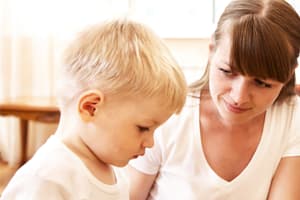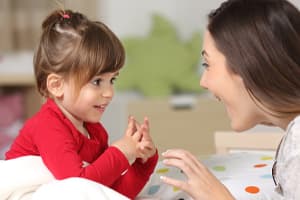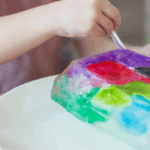
Top tips: Supporting nursery children to manage feelings
Personal, Social and Emotional Development is a prime area of learning within the Early Years Foundation Stage framework (EYFS)

Here are our NDNA early years expert’s tips on supporting PSED at your nursery
Supporting children’s emotional well-being is central to caring for and educating young babies and young children. Children’s emotional needs should be supported from an early age by sensitive, knowledgeable, caring adults so they can learn to self-regulate and develop emotional resilience to help them cope with everyday life in the future.
As an early years practitioner, you can support children’s development in this area by providing children with opportunities to experience and explore a range of different interactions and emotions from a secure base.
Through meaningful interactions and experiences, children can develop a strong sense of self, positively affecting their self-esteem and happiness.
There are some great resources available to support PSED, however, nothing can replace the power of positive interactions with experienced and knowledgeable practitioners.
By using some of the tools below, you can equip the children in your care with the skills for success!
Building a secure relationship between the child, family and their key person is a key aspect to supporting PSED. Sharing information about a child’s likes and dislikes and interests, the child’s development stage, home routines and information about any changes at home which could impact a child’s well-being.
Recognising and labelling feelings and emotions:
- Tune in to the emotions of the child and what they are trying to communicate.. Being empathetic to children’s needs shows them that their feelings are important and you understand what it’s like ‘to be in their shoes.’ By responding sensitively to their needs, labelling and validating their emotions, practitioners are co-regulating
- When responding to an upset or distressed child seek to label their emotion, validate it and then create a plan to help resolve the underlying cause
- Provide opportunities to talk about and name feelings and how they make you feel, for example, ‘When I feel worried, it can feel like lots of butterflies fluttering in my tummy’ or ‘You look happy today, your smile is so big and you are laughing a lot.’

Positive role-models
There is a common misconception that as adults, we should not allow children to see us struggle. Whilst it is necessary to remain professional within your role, it is important to role model reactions to experiences.
If children see a trusted adult label an emotion and then model how they deal with it, they are much more likely to manage their own behaviours when faced with similar situations.
For example, ‘When I feel sad, I like to spend time with my friends,’ or ‘Sometimes I feel worried, but when I do, I like to do something relaxing, like read a book or listen to music.’
Supporting children to manage their feelings and behaviour in their earliest years builds a strong foundation for the rest of their lives.

Specific praise
Nearly all early years children enjoy recognition and praise for their achievements. However, this praise needs to be meaningful.
By using phrases like ‘good girl’ and ‘good boy,’ children do not always attach their efforts to the praise given. Instead, simply say what you see and the type of characteristic it demonstrates, this can have an impact on how children see themselves.
For example, ‘You’re tidying the toys away, without being asked! That’s very helpful.’
Tips to support PSED
- Appropriate reassuring hugs and cuddles are really important – ensure staff know what is appropriate through policies, guidelines and training
- Children’s friendships are very important for their well-being. Provide support for those children who find making friendships challenging
- Provide comfortable, cosy areas for children to relax
- Display resources and picture books reflecting a range of emotions and use emotion boards, spoons or stones to support children to share how they are feeling. As adults, we should be role modelling that it is normal to be sad or frustrated sometimes, but we should always talk about how we feel
- Praise children’s efforts as well as achievements to help raise self-esteem.
More support
For more tips on supporting children of all ages with their personal, social and emotional development, we have launched an online course, written by our early years experts.
It’ll support you to help children to become self-confident, make strong relationships and manage their feelings.
- Emotions
- PSED
Similar Articles
Top tips: Supporting your team’s well-being

Early years activity: Frozen balloon explorers


